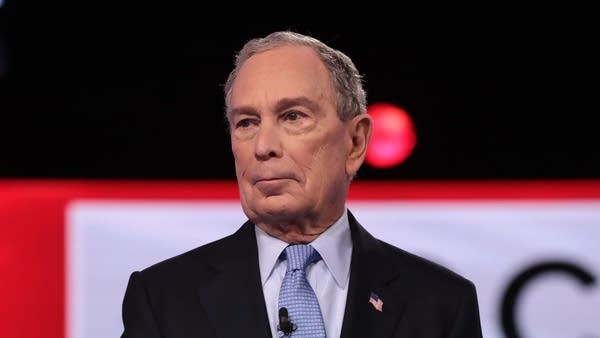He’s hoping to attract millennial voters.

Earlier this month, Democratic presidential hopeful Michael Bloomberg hired a team of meme creators to post viral social media content for his campaign. Given the polls at the moment, it doesn’t seem like it worked, but we’re definitely still talking about it.
The sponsored content sidestepped Facebook and Instagram’s rule on political ads, and that prompted the company to create a new policy around sponsored content by politicians. Since other candidates might catch on to the influencer marketing, a $15 billion industry, we will probably see more as the year wears on.
I spoke with Taylor Lorenz, a reporter at the New York Times who writes about internet culture, and I asked her if there are any regulations on how candidates use branded content. The following is an edited transcript of our conversation.
Taylor Lorenz: Not really a ton. The Federal Trade Commission has tried to issue rules and guidelines around disclosure on sponsored content. It has not been effective. There’s really no way to police these massive platforms. The majority of content related to politics is not sponsored, it’s organic content. When you look at who’s generating the most online conversation, it’s undeniably Trump and Bernie Sanders. I think that Bloomberg is trying to make a name for himself online through his paid content. But you have the vast majority of political content on these platforms discussing Sanders and Trump.
Molly Wood: What do you think is the relative wisdom of this campaign, knowing that it primarily targets pretty young users who either might be too young to vote or who historically have not been that active in elections?
Lorenz: I wouldn’t say it targets that young users, to be honest. The accounts that posted these memes actually have a much older audience. It really is the millennial memers. They wanted in on this. They’re trying to make a buck anywhere. I think it’s just worth noting that for Bloomberg to be in the running on the internet, he has to pay for it. He’s not able to generate that grassroots support that some of the others or more outsider candidates have. We’ll see if it’s successful and if these people actually come out to the polls.
Wood: It gets to this age-old question. Ever since there’s been viral internet content, there have been people who’ve been trying to manufacture viral internet content. You could argue that while some things do go viral, maybe more than they used to in terms of brands, it’s still an uphill strategy. Is it something that no other candidate is going to try because it takes either so much money or time?
Lorenz: Well, again, not to bring him up again, but Sanders is a candidate who he himself is really the influencer, and he has gotten the majority of support from actual influencers, like YouTube stars. He hasn’t had to spend a dime on that. Bloomberg’s viewpoints don’t generally have that organic, young support. When you’re a candidate like Bloomberg where you don’t have that youth support baked in, you have to essentially try to buy it.
The New York Times and The Guardian both have pieces this week arguing that the Bloomberg campaign is really pushing the limits of social media. First, by sidestepping the ad rules that would have led to maximum transparency around the sponsored content, Facebook doesn’t even consider paid influencer marketing to be advertising, which meant the memes won’t show up in its archive of political ads. Last week, the campaign passed around a doctored video from one of the debates that seemed uncomfortably close to a deep fake, and Twitter suspended 70 pro-Bloomberg accounts for basically being spam.
As The Verge noted Tuesday, it’s possible that all these social media efforts are just backfiring, but then again, we still don’t know how much of social media trends make it into the real world. I guess we’ll find out next Tuesday.
Also watching
Clearview AI is a company that built the database of 3 billion images that it grabbed from the internet and sold facial recognition tech to law enforcement. A while back, I asked myself, “What happens if that database ever gets stolen or sold?” It turns out I hadn’t considered the other option, which is, what happens if someone steals the list of customers that use Clearview AI? Apparently, that happened. The company told its customers on Wednesday that someone stole its entire client list, as well as information about how many searches those customers performed. Can’t imagine any good will come of that.
In a roundabout climate tech story, Google announced that it will invest more than $10 billion in data centers and offices around the U.S. this year. It said that investment would create all kinds of jobs, like construction to build the data centers, and specifically in renewable energy as the company also builds or funds clean energy projects to offset all that energy use.
In coronavirus news, biotech companies are rushing to try to come up with vaccines for the virus. A small company called Moderna has shipped an experimental vaccine to the National Institutes of Health, which is going to start clinical trials. The company went public in 2018 and started work on the vaccine with funding from a coalition started in January by the countries of Norway and India. It also includes funding from the Bill and Melinda Gates Foundation and the World Economic Forum.
Also, rearchers are looking into how to use automation and robotics to do medical tasks and telemedicine to keep hospital staff and doctors safe as the virus spreads. We’ll be talking to our China correspondent Jennifer Pak about a lot of this on tomorrow’s show.